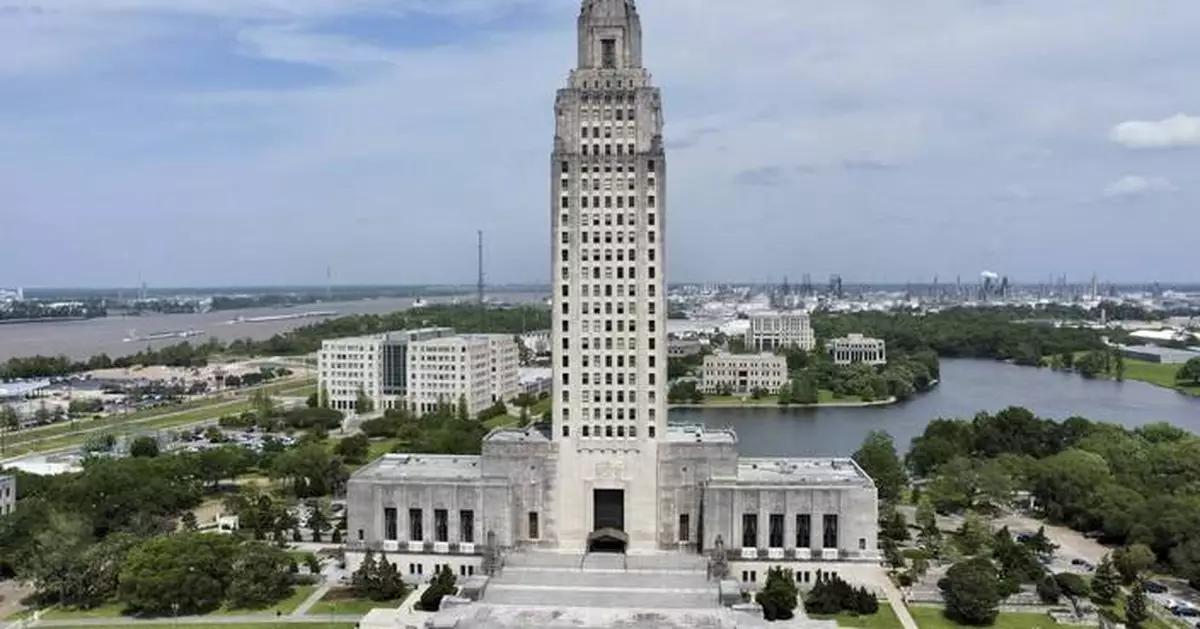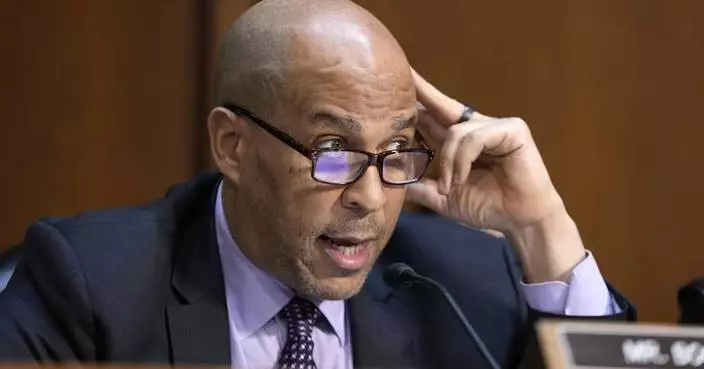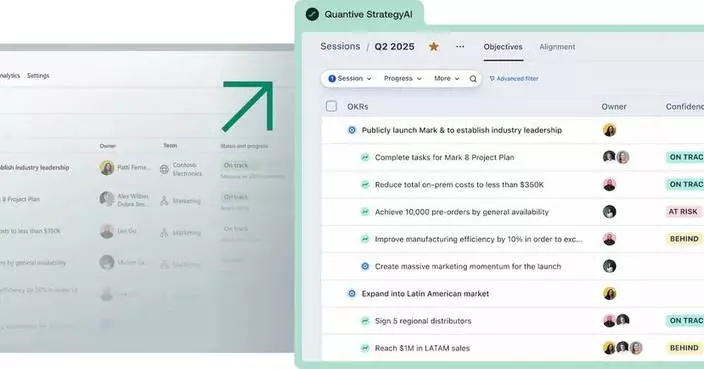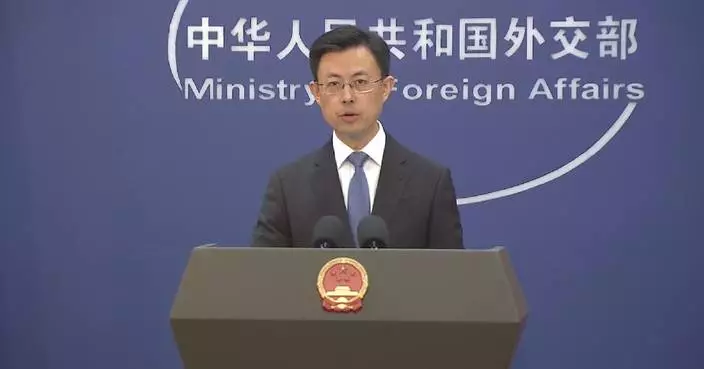NEW ORLEANS (AP) — Louisianians are set to vote Saturday on several constitutional amendments dealing with crime, courts and finances.
During a special legislative session focused on Gov. Jeff Landry's tax reform overhaul last fall, lawmakers approved four proposed changes to the state's constitution.
Here's an overview of the main issues going before voters:
Last year, Louisiana's GOP-dominated Legislature voted to treat 17-year-olds as adults in the criminal justice system, as part of Landry's broad tough-on-crime agenda.
Prosecutors can also charge anyone under 17 as an adult for offenses including rape, murder and armed robbery, according to a list in the state's constitution. Changes to this list require a statewide vote.
Voters are being asked to remove the list from the constitution so lawmakers can more easily expand the kinds of crimes that can lead to juveniles being charged as adults.
Supporters say this provides lawmakers with more flexibility to respond to the wishes of prosecutors. Opponents say this is a draconian approach that doesn't address the systemic causes of youth crime.
The largest and most complicated proposed amendment exceeds 100 pages and concerns the notoriously convoluted revenue and finance section of the Louisiana Constitution. The sweeping changes are condensed for voters as a ballot question that is less than 100 words.
One of the key changes proposed in the amendment is to liquidate several education trust funds to pay off around $2 billion in public school system debt. They would then use the savings on interest payments to the funds to boost teacher salaries by $2,000 a year.
The amendment would also tighten restrictions on increasing state spending for ongoing programs and merge two state savings accounts that would give lawmakers more money to spend but potentially reduce long-term rainy day funds.
While the proposed changes received bipartisan support from lawmakers who say it would streamline government efficiency and improve fiscal planning, critics have argued the changes lack transparency and destabilize savings and education funds.
Louisiana's Legislature is asking voters to give them broader power to establish specialty courts. The state already has dozens of specialty courts handling cases on issues including veteran's affairs and drug abuse, but they are bound to specific parishes and judicial districts.
Under the proposed constitutional change, lawmakers would have the ability to create statewide or regional courts. Supporters say this could allow for more latitude to handle complex cases such as business litigations, while critics have said this could be a way for conservative lawmakers to undermine the power of judges in more liberal New Orleans.
Another amendment would give the state more flexibility in filling judicial vacancies on its Supreme Court. Instead of being mandated to fill an opening within 12 months as the constitution stipulates — potentially requiring a costly special election — these judicial elections would be part of the next scheduled regular election. The potential issue emerged after Louisiana lawmakers voted last year to end the tradition of “jungle” primaries for the state's Supreme Court.
Brook is a corps member for The Associated Press/Report for America Statehouse News Initiative. Report for America is a nonprofit national service program that places journalists in local newsrooms to report on undercovered issues. Follow Brook on the social platform X: @jack_brook96.

FILE - Kash Strong, 3, peeks out from under the curtain of a voting booth as his mother Sophia Amacker casts her vote on Election Day at the Martin Luther King Elementary School in the Lower Ninth Ward of New Orleans, Nov. 8, 2022. (AP Photo/Gerald Herbert, File)
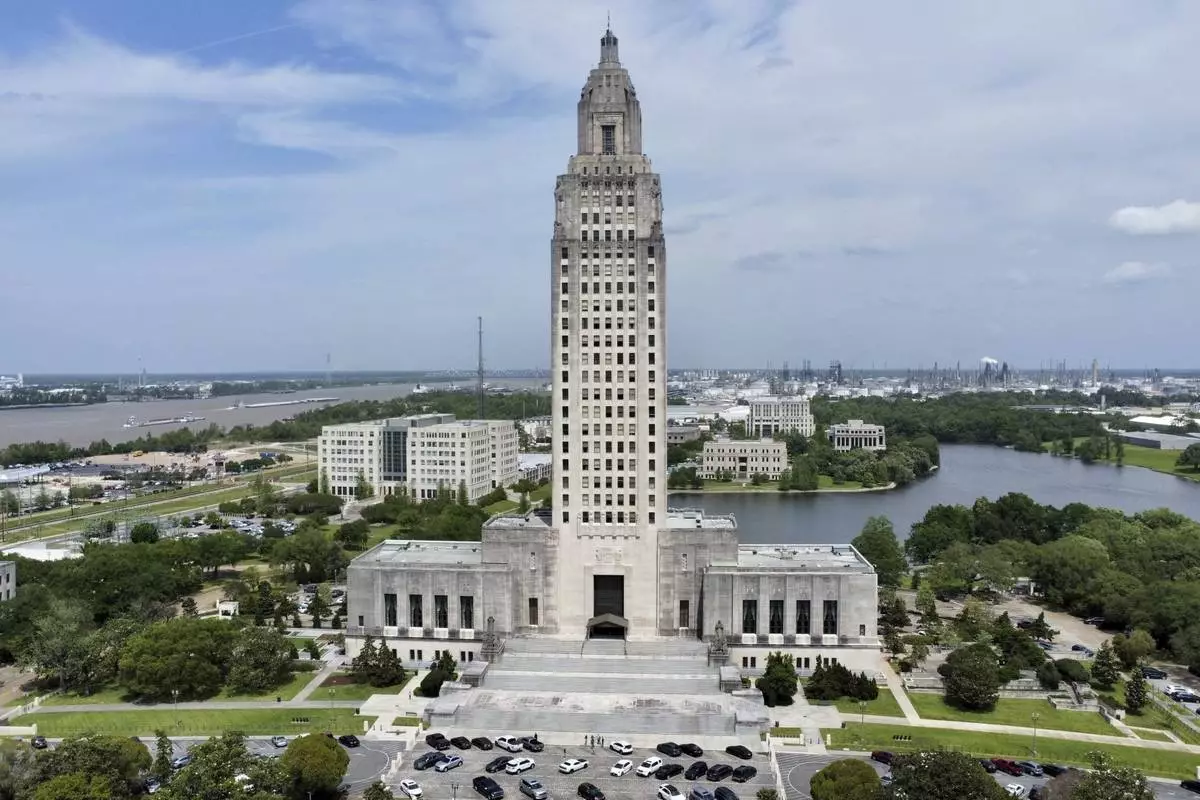
FILE - The Louisiana state Capitol stands on April 4, 2023, in Baton Rouge, La. (AP Photo/Stephen Smith, File)
Employees across the U.S. Department of Health and Human Services began receiving notices of dismissal Tuesday, as part of a major overhaul expected to ultimately lay off up to 10,000 people. The notices come just days after President Donald Trump moved to strip workers of their collective bargaining rights at HHS and other government agencies.
Here's the latest:
The Tuesday layoffs, coming on new director Dr. Jay Bhattacharya’s first day, are part of a larger effort by the Trump administration and Health Secretary Robert F. Kennedy Jr. to reduce the size of the Health and Human Services department by about 25%.
At the NIH, the cuts included at least four directors of the NIH’s 27 institutes and centers who were put on administrative leave, and nearly entire communications staffs were terminated, according to an agency senior leader, speaking on condition of anonymity to avoid retribution.
An email viewed by The Associated Press shows some senior-level employees of the Bethesda, Maryland, campus who were placed on leave were offered a possible transfer to the Indian Health Service in locations including Alaska and given until end of Wednesday to respond.
— Lauran Neegaard
President Trump’s nominee to become the next Chairman of the Joint Chiefs of Staff, retired Air Force Lt. Gen. Dan “Razin” Caine told senators Tuesday he understands he’s an unknown and unconventional nominee — but the nation is facing unconventional and unprecedented threats, and he’s ready to serve in its defense.
“I realize for many Americans I am an unknown leader,” Caine said in his opening remarks. He spoke of serving under presidents of both parties and of his wide span of experience, which also included service in the National Guard, the private sector and the CIA.
The complaint filed Tuesday in federal district court in Washington is the third major legal challenge to the order in two days after national Democrats and a pair of nonprofits filed two other lawsuits Monday.
The suit brought by the Brennan Center for Justice, the American Civil Liberties Union and others argues Trump’s call for a proof-of-citizenship requirement to register to vote violates the U.S. Constitution.
Other legal experts have raised similar concerns, since the Constitution’s so-called “Elections Clause” gives states and Congress the power to regulate federal elections.
Republicans have argued a proof-of-citizenship requirement will help secure elections against illegal noncitizen voting, which research shows is rare. The White House didn’t immediately respond to a request for comment.
Seven years ago, when a joint bid by the United States, Canada and Mexico was awarded the 2026 World Cup, rifts created by tariffs — yes, back then, too! — and a proposed border wall were glossed over because of the neighbors’ longstanding political and economic alliances.
“The unity of the three nations″ was the overriding theme articulated by Carlos Cordeiro, then-president of the U.S. Soccer Federation. “A powerful message,” he called it.
Well, here we are now, with the soccer showcase arriving in North America in about 15 months, and Trump back in office — inciting trade wars between the neighbors, not to mention across the globe, by levying tariffs that come, then go, then return, with more promised, including what the Republican calls “ reciprocal tariffs ” starting Wednesday.
▶ Read more about tariffs and the US-Canada-Mexico joint World Cup
Treasury Secretary Scott Bessent is expected to meet with congressional Republicans again Tuesday afternoon as they edge closer to agreement on a budget framework for Trump’s tax breaks.
Senate GOP Leader John Thune is hoping to launch votes on the package this week. But differences remain, particularly over GOP spending cuts.
Futures for the S&P 500 fell 0.5% before the bell Tuesday morning, while futures for the Dow Jones Industrial Average lost 0.6%. Nasdaq futures also headed 0.5% lower.
Gold rose to over $3,170.00 per ounce early Tuesday before falling back slightly. Gold is hitting all-time highs as investors seek a save place to park their money with markets destabilized by Trump’s tariff threats.
On Wednesday, the United States is set to begin what Trump calls “ reciprocal ” tariffs. Yet little is known about exactly who will be targeted and what the tariff scheme will be.
▶ Read more about the financial markets
A top European Union official warned the U.S. on Tuesday that the world’s biggest trade bloc “holds a lot of cards” when it comes to dealing with the Trump administration’s new tariffs and has a good plan to retaliate if forced to.
Trump has promised to roll out taxes on imports from other countries Wednesday. He says they will free the U.S. from reliance on foreign goods.
He’s vowed to impose “reciprocal” tariffs to match the duties that other countries charge on U.S. products, dubbing April 2 “Liberation Day.”
“Europe has not started this confrontation. We do not necessarily want to retaliate, but if it is necessary, we have a strong plan to retaliate and we will use it,” European Commission President Ursula von der Leyen told EU lawmakers.
▶ Read more about the European Union’s response to tariffs
The race, which will be decided Tuesday, broke records for spending and has become a proxy battle for the nation’s political fights, pitting a candidate backed by President Trump against a Democratic-aligned challenger.
Republicans including Trump and the world’s wealthiest person, Elon Musk, lined up behind Brad Schimel, a former state attorney general. Democrats like former President Barack Obama and billionaire megadonor George Soros backed Susan Crawford, a Dane County judge who led legal fights to protect union power and abortion rights and to oppose voter ID.
The first major election in the country since November is seen as a litmus test of how voters feel about Trump’s first months back in office and the role played by Musk, whose Department of Government Efficiency has torn through federal agencies and laid off thousands of workers. Musk traveled to Wisconsin on Sunday to make a pitch for Schimel and personally hand out $1 million checks to two voters.
▶ Read more about the Wisconsin Supreme Court election
Booker took to the Senate floor Monday evening saying he would remain there as long as he was “physically able.” He was still on the floor Tuesday morning more than 12 hours later.
“These are not normal times in our nation,” Booker said at the start of his speech. “And they should not be treated as such in the United States Senate. The threats to the American people and American democracy are grave and urgent, and we all must do more to stand against them.”
Booker railed against cuts to Social Security offices and spoke to concerns that broader cuts to the social safety net could be coming, though Republican lawmakers say the program won’t be touched.
▶ Read more about Sen. Cory Booker’s speech
At 12:30 p.m., President Trump and Vice President JD Vance will have lunch at the White House. At 3 p.m., Trump will sign executive orders. There will also be a press briefing held at noon today, according to the White House.
The Food and Drug Administration’s chief tobacco regulator has been removed from his post amid sweeping cuts at the agency and across the federal health workforce handed down Tuesday, according to people familiar with the matter.
In an email to staff, FDA tobacco director Brian King said: “It is with a heavy heart and profound disappointment that I share I have been placed on administrative leave.”
King was removed from his position and offered reassignment to the Indian Health Service, according to a person familiar with the matter who did not have permission to discuss the matter publicly and spoke on the condition of anonymity.
Dozens of staffers in FDA’s tobacco center also received notices of dismissal Tuesday morning, including the entire office responsible for enforcing tobacco regulations.
▶ Read more about the FDA’s chief tobacco regulator
— Matthew Perrone
Trump has repeatedly called April 2 “Liberation Day,” with promises to roll out a set of tariffs, or taxes on imports from other countries, that he says will free the U.S. from a reliance on foreign goods. To do this, Trump has said he’ll impose “reciprocal” tariffs to match the duties that other countries charge on U.S. products.
But a lot remains unknown about how these levies will actually be implemented. White House press secretary Karoline Leavitt said Monday that Trump would unveil his plans on Wednesday, but maintained that the details are up to the president to announce.
Since taking office just months ago, Trump has proven to be aggressive with tariff threats, all while creating a sense of whiplash through on-again, off-again trade actions. And it’s possible that we’ll see more delays or confusion this week.
▶ Read more about Trump’s “Liberation Day”
Employees across the massive U.S. Department of Health and Human Services began receiving notices of dismissal on Tuesday in a major overhaul expected to ultimately lay off up to 10,000 people.
The notices come just days after Trump moved to strip workers of their collective bargaining rights at HHS and other agencies throughout the government.
Health Secretary Robert F. Kennedy Jr.’s announced a plan last week to remake HHS, which, through its agencies, is responsible for tracking health trends and disease outbreaks, conducting and funding medical research, monitoring the safety of food and medicine, and administering health insurance programs for nearly half of the country.
The plan would consolidate agencies that oversee billions of dollars for addiction services and community health centers across the country under a new office called the Administration for a Healthy America.
The layoffs are expected to shrink HHS to 62,000 positions, lopping off nearly a quarter of its staff — 10,000 jobs through layoffs and another 10,000 workers who took early retirement and voluntary separation offers.
▶ Read more about the layoffs at HHS
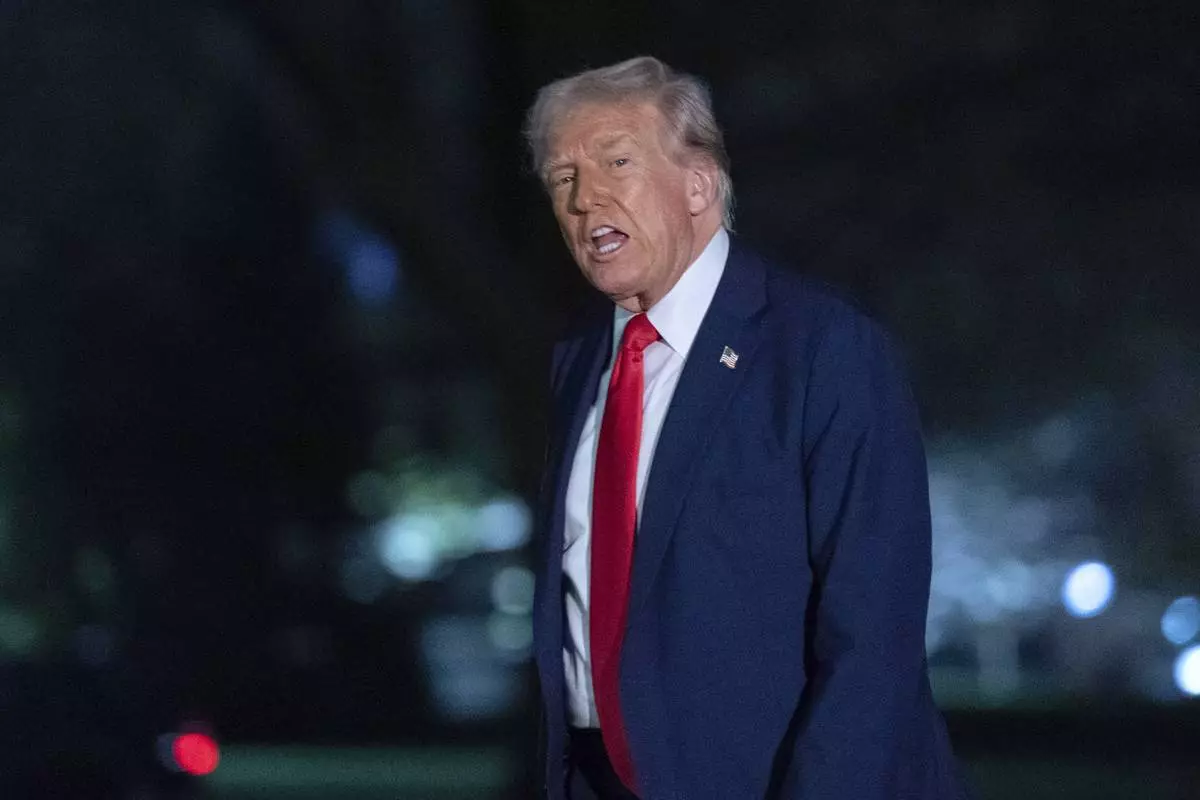
President Donald Trump talks to reporters as he walks on the South Lawn of the White House, in Washington, Sunday, March 30, 2025. (AP Photo/Jose Luis Magana)
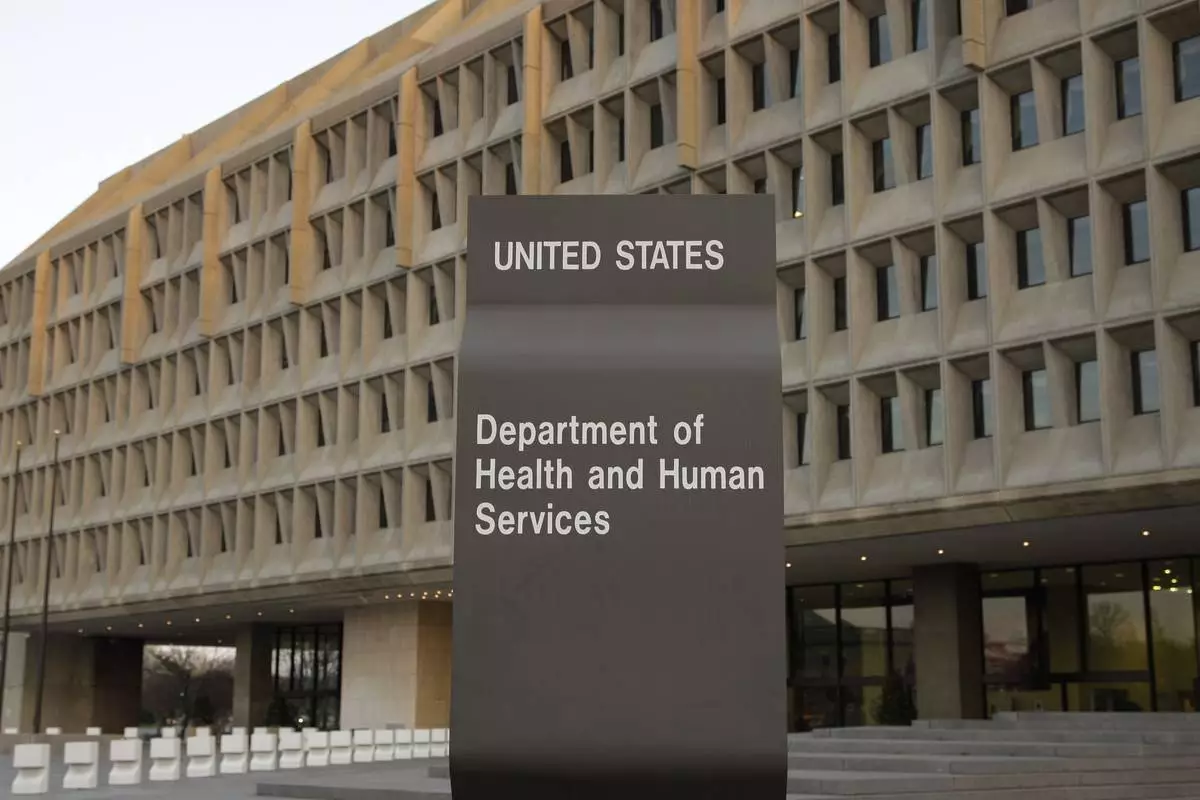
FILE - The Department of Health and Human Services building is seen in Washington, April 5, 2009.(AP Photo/Alex Brandon, File)




